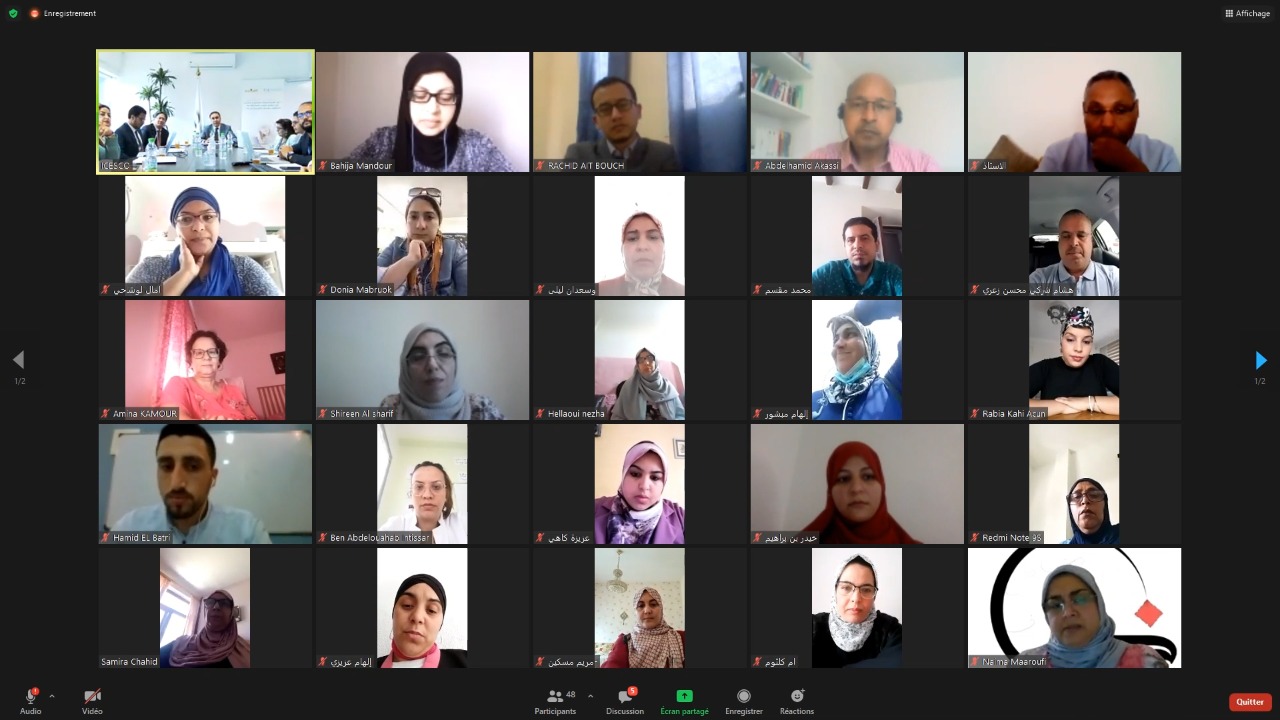
ICESCO Holds Working Session on Developing Field of Teaching Arabic to non-Arabic Speakers

17 June 2021
The Regional Workshop on “Role of Strategies and Digital Resources in Developing Distance Teaching and Learning of Arabic for non-Arabic Speakers kicked off June 16, 2021, via videoconference. The Islamic World Educational, Scientific and Cultural Organization (ICESCO) and the Association européene pour les Arabophiles in Belgium (European Association for Teaching Arabic to non-Arabic Speakers) organized the workshop, which brought together 80 Arabic teachers from seven European countries, namely Belgium, Italy, France, the UK, Spain, the Netherlands, and Germany.
In his address at the opening of the two-day workshop, Dr. Abdelilah Benarafa, ICESCO Deputy Director-General (DG), stated that disseminating Arabic and promoting knowledge about the Islamic culture and its noble values across the globe are two of the major trends in ICESCO’s new vision. He added that the Organization is aware of the magnitude of educational, academic, and scientific challenges facing Arabic institutions and dedicates a significant number of programs and projects to lay the solid foundations for advanced education and training programs that would benefit education officials.
Dr. Benarafa also stated that the Organization considers human diversity to be a key factor in promoting dialogue, rapprochement, and understanding between nations and peoples and endeavors to disseminate Arabic among different cultures and religions. Through its efforts to promote Arabic, Dr. Benarafa stressed that ICESCO aims to publicize Islamic values and culture which are founded on reform, fraternity, tolerance in addition to a myriad of positive values.
The ICESCO Center of Arabic for Non-Arabic Speakers oversaw the workshop, which aims to build the teaching, professional and digital capacities of Arabic teachers working in European countries. It also aims to train them on the adoption of modern strategies of teaching Arabic as a foreign language and the use of some digital resources to develop language and communication skills.
The workshop also seeks to introduce participants to modern examples of strategies for distance teaching of Arabic to non-Arabic Speakers, provide participants with the opportunity to consolidate their lesson planning and distance class management skills, capitalize on digital resources in distance teaching, and activate autonomous learning activities among learners.





